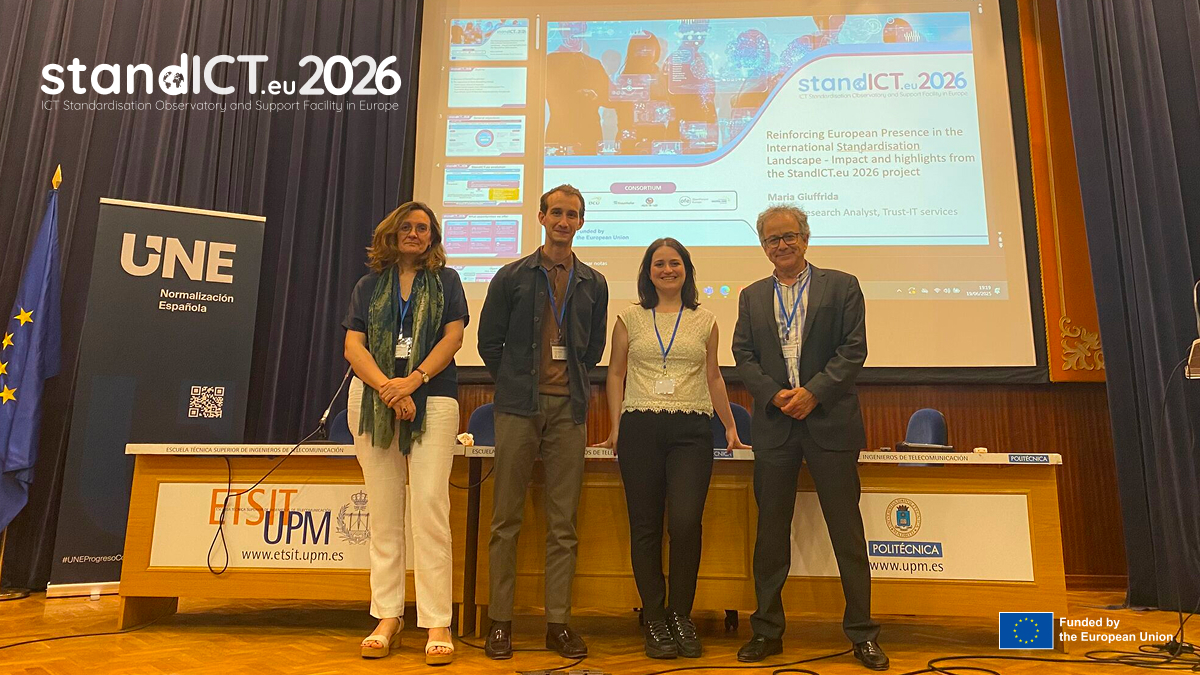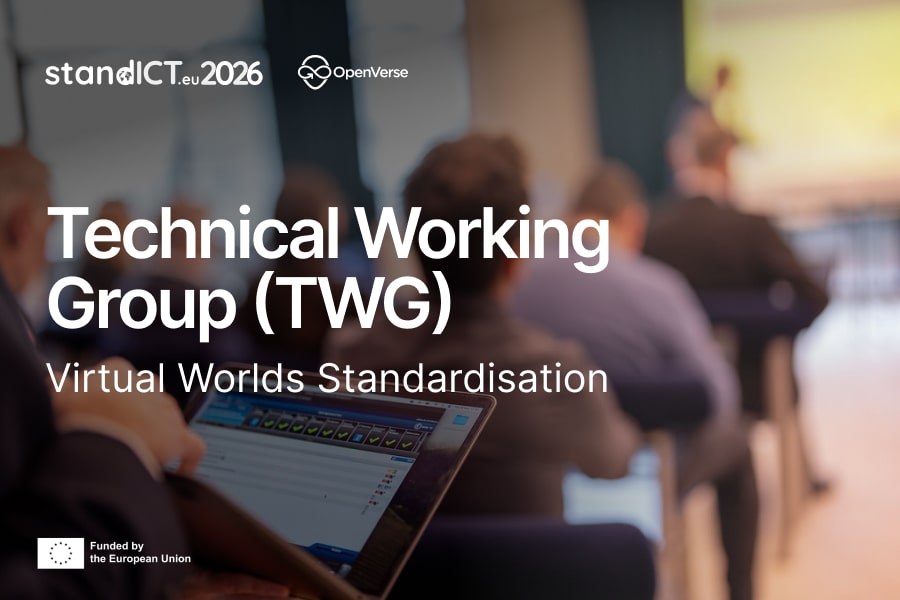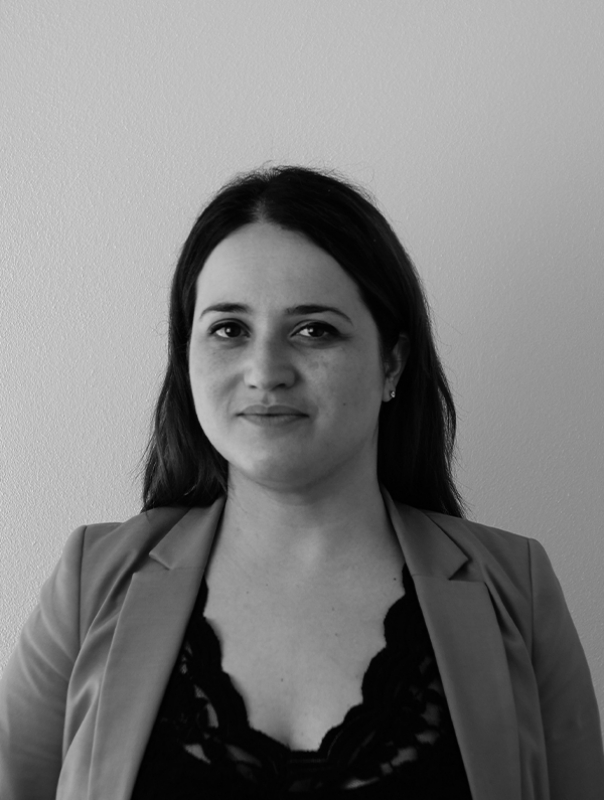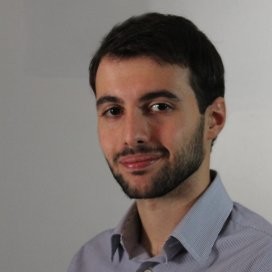Read time: 3 mins
On 19 June 2025, the StandICT.eu 2026 project contributed to the EURAS conference entitled "Empowering Standardisation Through Education", organised by the Polytechnic University of Madrid (UPM) and UNE, Spain’s national standardisation body. The workshop organised by StandICT.eu 2026 as its second impact event served as a concrete opportunity to showcase how targeted support to individuals contributes to strengthening Europe’s influence in international ICT standardisation.
The StandICT.eu panel brought together four experts supported by the project’s fellowship programme, all of whom are actively engaged in major standard developing organisations (SDOs) such as ISO/IEC, IEEE, ITU, and CEN-CENELEC. Their interventions offered practical examples of how European priorities – including AI trustworthiness, data governance, open digital infrastructures, and smart environments – are being translated into global technical specifications.
In line with the strategic focus of the Rolling Plan for ICT Standardisation, the session placed particular emphasis on the need to connect research, innovation, and policy through standardisation. One of the central messages emerging from the panel was the importance of engaging researchers and professionals at early stages, providing them with the tools to understand and influence standards. In this regard, education and skills development are not just complementary activities but fundamental to the EU’s long-term standardisation leadership.

Speaker Highlights
Belén Suárez, CEO of Go To Innovation, opened the panel by reflecting on the need to ensure diverse participation in standardisation – particularly by women and SMEs. She shared how support from StandICT helped her navigate complex international environments and amplify her work within standardisation committees.
Pablo Vicente Legazpi, Project Manager at the Building Digital Twin Association, presented a use case where digital twin technologies in the built environment evolved into pre-standardisation efforts, feeding into CEN and ISO working groups. His example demonstrated how national-level engagement, notably through UNE, can be an effective entry point into international standards development.
Luis Morán Abad, Senior IT Advisor and contributor to UNE CTN 71/SC 40, showcased examples of harmonising standards across domains in service management and governance. His work has led to the development of best practices adopted at both national and international levels, illustrating the concrete value standards bring to digital transformation efforts.
Luca Nannini, AI Policy and Standards Specialist at Piccadilly Labs, provided an update on the work of CEN-CENELEC JTC 21, the body developing European AI standards aligned with the AI Act. He highlighted the complexities of transforming societal values – such as transparency and accountability – into technical requirements, stressing the need for wide stakeholder participation and deliberate, quality-driven processes.
Key takeaways
A recurring theme throughout the session was the importance of accessible engagement pathways, particularly for newcomers and SMEs. Several panellists noted that contributing to national standardisation committees, such as those run by UNE, can serve as a stepping stone towards broader involvement at the European and global level. This multi-tiered approach supports the broader EU vision of a standardisation system that is open, inclusive, and aligned with regulatory and market needs.
The session also highlighted the role of education in standardisation. As Europe moves to implement key policy frameworks like the Digital Decade and the AI Act, it becomes increasingly important to equip researchers and innovators with the necessary knowledge to contribute effectively to standardisation processes. The StandICT.eu EUOS Standards Academy was cited as a key instrument in this context, offering training materials, webinars, and practical guidance for experts at all levels of experience.
Learn more about the Academy.





